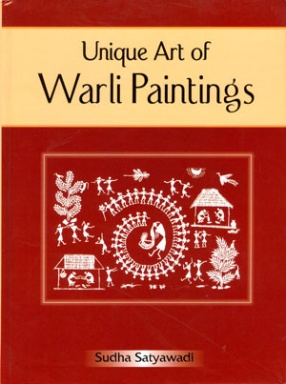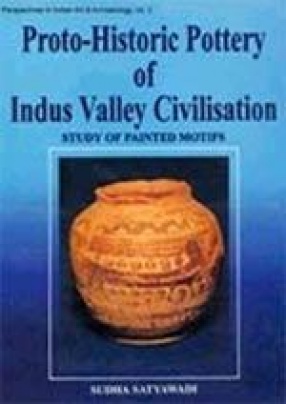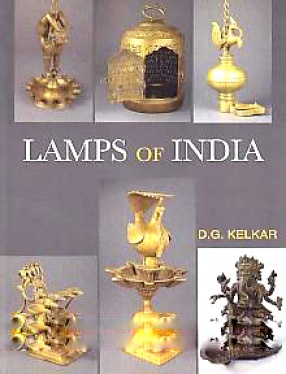Warli painting has its own place in adivasi art of India. It takes its name from the Warli tribes of Maharashtra. It seems their roots are in the rock shelters of ancestors found in Bhimbhedka and Raisen in Madhya Pradesh.
Warli paintings are pointers — they fulfil a purpose. Their presence in the hut is auspicious and is said to promote fertility, avert disease, propitiate the dead, etc. They show rituals at birth, marriage, a life full of dance and music, livelihood, connectivity with death and life after death. Artists express a kind of fulfilment they experience that is in harmony with nature and their gods and goddesses. Warli art is simple yet rich. The material used for painting is simple, themes contained therein, philosophy of existence and even life beyond death, all are brought forth in a most elementary format. Many specimens of Warli art are contained in this book. The paintings are expressive with profound truths and project all that one needs to know how to live a happy life. Austere brown wall surface of huts displaying tribal designs with typical rock art motifs make Warli art different from other tribal paintings of India.
This book is a modest compilation of Warli art that comes through an unbroken tradition of thousands of years. But Warli art traditions are gradually vanishing. Money elsewhere is pulling artists away from their traditional occupation. Something has to be done by society to create conditions for them, to not get weaned away by lure of commercial avenues. This book is a small effort to save this art from falling off from the pathway of time continuum.







There are no reviews yet.